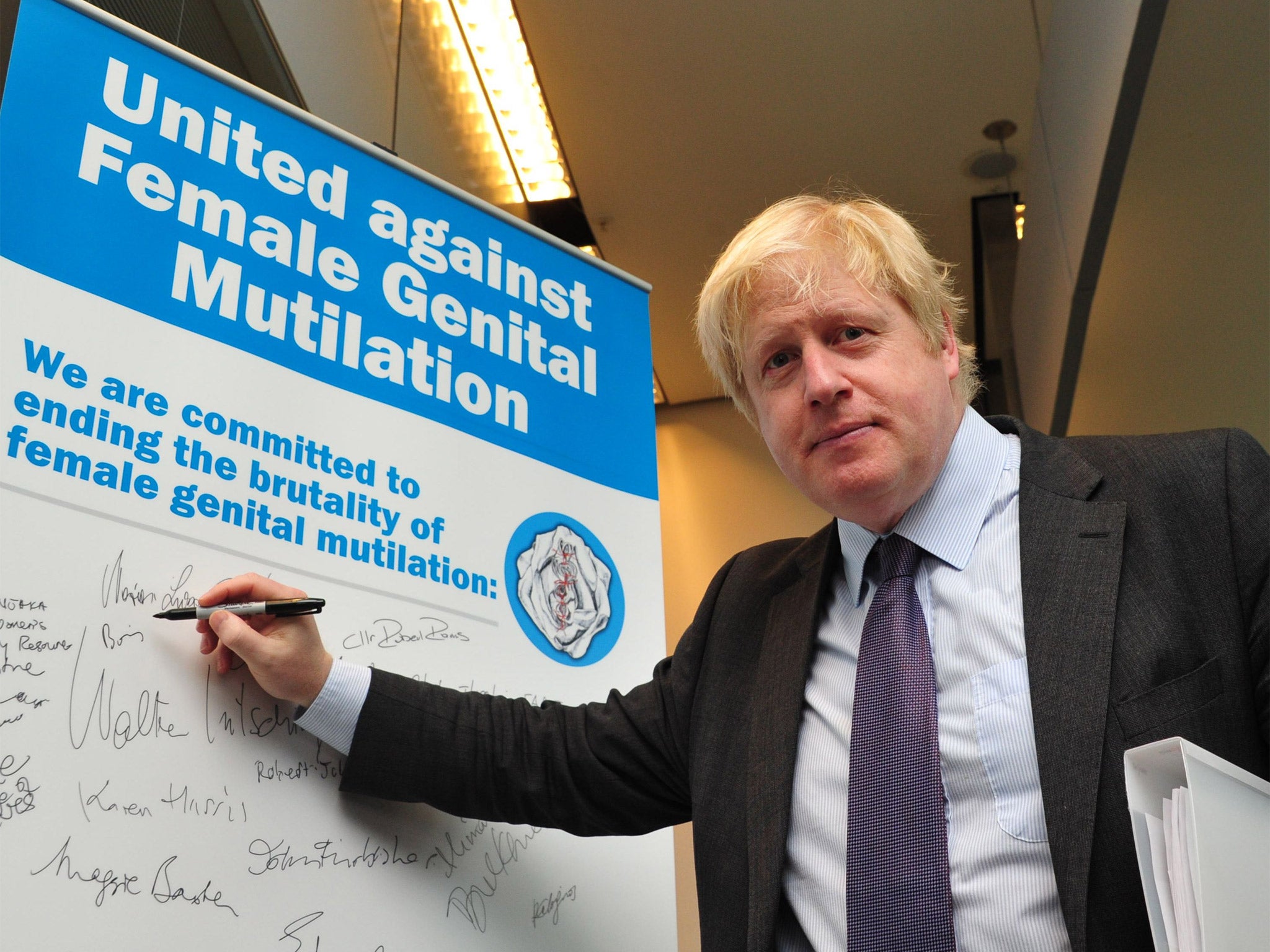Almost 4,000 women and girls treated for effects of female genital mutilation in London hospitals since 2009

Your support helps us to tell the story
From reproductive rights to climate change to Big Tech, The Independent is on the ground when the story is developing. Whether it's investigating the financials of Elon Musk's pro-Trump PAC or producing our latest documentary, 'The A Word', which shines a light on the American women fighting for reproductive rights, we know how important it is to parse out the facts from the messaging.
At such a critical moment in US history, we need reporters on the ground. Your donation allows us to keep sending journalists to speak to both sides of the story.
The Independent is trusted by Americans across the entire political spectrum. And unlike many other quality news outlets, we choose not to lock Americans out of our reporting and analysis with paywalls. We believe quality journalism should be available to everyone, paid for by those who can afford it.
Your support makes all the difference.Thousands of women and girls have been treated in London hospitals for the effects of female genital mutilation, suggesting that many more have received similar treatment nationwide.
Nearly 4,000 women and girls, some of them born in the UK, were treated for FGM in hospitals across the capital since 2009, according to figures released under the Freedom of Information Act.
Campaigners said the London figures, obtained by BBC News, suggested there were thousands of women across Britain suffering the after-effects of FGM while many girls also live under threat of mutilation.
Despite being classed as torture by the United Nations and a crime in Britain since 1985, there have been no prosecutions against those responsible for the brutal practice which is generally inflicted when victims are babies or young girls.
Nearly half of the 3,939 women treated at the 31 hospitals which responded to the FOI request attended two south London NHS trusts - Guy’s and St Thomas’ NHS Foundation Trust and St George’s Healthcare NHS Trust, which treated 1,146 and 795 women respectively.
Eight of those treated at St George’s were born in the UK. FGM is most common among some African, Asian and Middle Eastern communities.
Ealing Hospital NHS Trust in west London treated 633 patients and the Whittington Health NHS Trust in north London cared for 493 patients.
The majority of women who attend hospital will have undergone the procedure a number of years earlier and have become known to medics during antenatal care or because of complications, such as recurrent urinary infections, associated with FGM.
Campaigners said the figures highlighted the need for a comprehensive system to report FGM. It is estimated that at least 66,000 girls and women in the UK are victims of FGM.
Rukayah Sarumi, advocacy and campaigns manager for the charity FORWARD, said: “Unfortunately these figures are not surprising and there are some indications that they may be higher because of cases going unrecognised or unrecorded. They underline the reason why we need a strategic and cohesive response to FGM. We need a national action plan, part of which must ensure that medical staff are fully trained to recognise the mutilation.”
From next month all NHS hospitals will have a system in place to record FGM and by September all major hospitals will be required to report their data to the Department of Health on a monthly basis. New cases of FGM on British girls are thought to be carried out either in the UK by backstreet practitioners or by taking the child out of the country.
London mayor Boris Johnson said he was backing an initiative to improve the way agencies respond to FGM cases. Experts warned last year there were “gaps” in how the health and social care systems offered support to victims.
Mr Johnson told BBC London: “This is a crime basically outlawed in the early-mid 1980s and yet, unlike in France, we have not had one single successful prosecution for what is unquestionably a completely barbaric crime.
“It’s time to stop being so nervous, so gingerly and hesitant. This is something that is absolutely intolerable in a place like London.”
Join our commenting forum
Join thought-provoking conversations, follow other Independent readers and see their replies
Comments